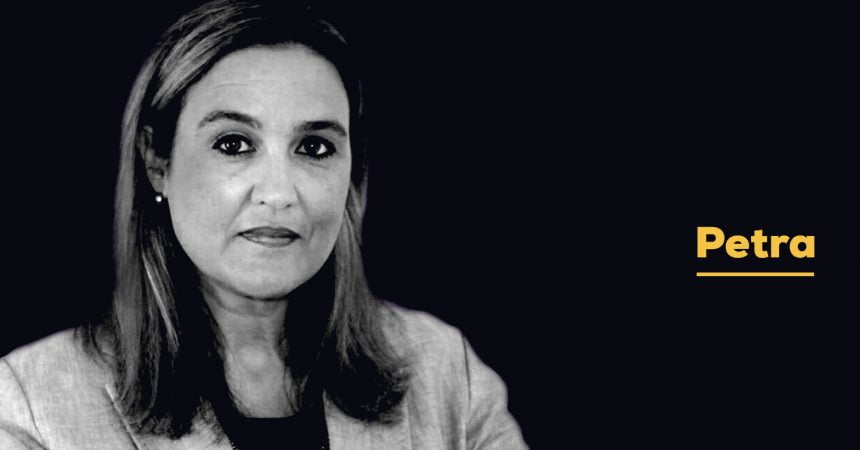The Prime Minister takes perceptions seriously and has lodged the term in his vocabulary.
In a talk on the national budget in October 2018, he said that poverty is ‘not a perception’. In 2014, he had also assured everyone that heavy traffic is ‘not a perception’. Everyone will agree with him on that. The proposed solutions to the problem are more contentious.
Things are not always what they seem. This is a world of beliefs vs facts. Perception vs reality.
Infrastructure Minister Ian Borg is beavering away at a perception of his own. According to him, the planned Central Link road in Attard is pro-environment.
Perception or reality? Two major environmental challenges are at the forefront – land use, and air pollution caused by traffic. Both are major problems here in Malta.
There is a difference though. Destroying more agricultural land is, in practice, irreversible, while alternative solutions to air pollution do exist, and they do not involve building wider roads.
As long as vehicles continue to increase, bigger roads are just a short term fix for traffic congestion. In that sense, not a particularly pro-environment project at all.
Better public transport is a greener vision. An underground metro system would take many years but, in the meantime, surely a radically improved bus service could have an acceptable time frame?
The trees along the existing road are not a perception. They are a reality which people care about. Many people are livid that these trees will be chopped down.
But Ian Borg’s perception is that this massive road project will make Malta greener. While the reality is that the new road to Naxxar, for example, is lined throughout with horrible concrete road dividers, without a bush or tree in sight.
In a political party, creating perceptions is the essential work of a ‘spin doctor’. This label is no longer as fashionable as it was in the ‘80s and ‘90s, but the negative slant is still understood. Opinions and ideas are good, but spin is off limits for solid independent media outlets.
Unfortunately, the credibility of the press took another hit when it was revealed that the media outlet Mediatoday is being paid by the government to package and promote its spin on the Central Link project.
This is not an irrelevant, run-of-the-mill sideshow. Conflict of interest applies when it is unacceptable to wear two particular hats. A Planning Authority board member, for instance, cannot be expected to manifest an objective opinion on an issue, when one of the parties is his client. He, or she, should, therefore, abstain from the discussion entirely.
Yet it is objectionable and entirely different if the press were to ‘abstain’ on issues of national concern. That is a terminally unhealthy situation. The independent press should not allow close interests to thrive on its turf.
The government spends huge amounts of taxpayers’ money to promote its messages and projects. It can’t be right, in a democracy, that opposing voices do not have access to adequate resources to balance this out. Not every random opinion in the street needs to be heard, but a significant outcry should at least have access to public media platforms on equal terms.
On the contrary, the CEO of Infrastructure Malta was given time on the public broadcaster PBS to trumpet the perceived advantages of the new road, and Minister Ian Borg also featured. A couple of dissenting voices had brief recorded clips on the programme, but nothing like the same prominence.
This was on the current affairs show Xtra Sajf, which is supported by Mediatoday whose PR role in the Central Link project has since been revealed by Lovin’ Malta, and which is hosted by Maltatoday’s managing editor Saviour Balzan.
Good public relations and marketing are, of course, essential for political parties. Unfortunately, the Opposition party is currently hopeless at it. From the start of the outcry against the Central Link project, the government has been repeating the line that the road is less bad than a 2006 plan of the previous Nationalist administration.
That plan was, however, never implemented, which should be a trump card for the Nationalist Party. A communications expert could surely come up with a whole range of soundbites to gain some mileage here.
The Opposition has instead been practically silent on this point. It has allowed the government to use a non-existent project (or a ‘perception’) of 2006 as a mitigating excuse for the current monstrosity. A perfect opportunity is now a missed opportunity.
In truth, the Nationalist Party currently lacks a convincing message on most things. Voters will not rally behind it unless they are prompted and moved by messages. The way ahead, following its vote of confidence on Saturday, will be painful. The problem is not just division, but a lack of basic, organisational functions.
Any reform must tackle the party’s public relations mess. It undoubtedly needs some professional advice on the best use of social media, and how to create soundbites and push ideas which work.












